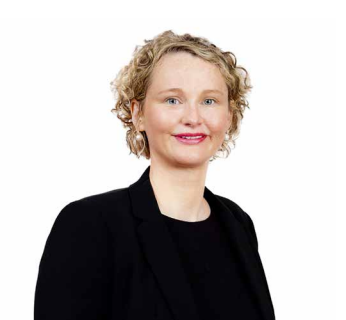HIQA publishes recommendations to support electronic sharing of information in older persons’ services
In November 2022, the Health Information and Quality Authority (HIQA) published a set of recommendations to enable the electronic sharing of health information in older persons’ services. Read more to find out all you need to know.
Background In common with many other countries, Ireland faces the challenge of an ageing population and it is expected that people aged 65 years or more will account for 50% of all healthcare activity by 2031.

An older person typically receives care from a wide range of health and social care professionals across both acute and community settings. However, the health information of an older person is usually held across a number of IT systems or in paper records, making it difficult for health and social care professionals to easily access and share this information across all settings.
This means that it is often difficult to get a full picture of the care needed for an older person. Additionally, the high number of different services an older person experiences, and the increasingly complex nature of older persons care, are challenges to the safe and effective sharing of health information in older persons’ services. The need for change These challenges in older persons’ services were intensified by the COVID-19 pandemic.
In August 2020, the COVID-19 Nursing Homes Expert Panel recommended the introduction of an integrated IT system to support the effective sharing of health information for older persons. The recommendation from the Expert Panel looked for the safe and effective sharing of information along the care journey, which includes numerous settings, such as: residential care settings (including public and private nursing homes): day care settings; home support services (including public and private providers); GP practice management systems; and discharge planning in acute settings.
HIQA’s involvement The Department of Health asked HIQA to explore how the capabilities recommended by the Expert Panel could be progressed and implemented. HIQA worked with stakeholders across health and social care, and ICT, to develop Recommendations on the ICT Enablement of Older Persons Services. The recommendations support the safe and effective electronic sharing of health information for older persons (and for other populations) across both public and private sectors, and are aligned to national eHealth goals under Sláintecare. The recommendations also provide an analysis of the current situation nationally and international best practice.
Informed by this evidence, they outline measures that would ensure that the capabilities requested by the Expert Panel are provided in line with national priorities. Recommendations
The recommendations are:
Strategy and governance: A national health information strategy, with identified priorities and associated funding, is needed to provide strategic direction across the entire health information system. A clear overall strategy for ICT enablement of older persons services is also needed, to ensure that the capabilities outlined by the Expert Panel are delivered. This should be developed by the appropriate governance structure(s).
Vision and roadmap: A shared vision must be developed, in collaboration with all stakeholders, with older persons being a critical stakeholder group. It is essential that stakeholders are fully engaged throughout the programme to ensure acceptance and adoption.
Standardised sharing of information: A suite of national standards are fundamental for the effective sharing of information and should include minimum datasets that are based on the actual needs of users. This will support the safe and effective sharing of appropriate information along the older person’s care journey, with those authorised to provide care having the information they need when they need it.
User engagement: All systems should meet basic user-centred principles and users should have the targeted training and broader digital education they need, such as through broad national initiatives.
This will ensure that users have confidence in, and are ready to adopt, the systems that are developed, which is a critical point of failure in some eHealth projects.
Next steps
To progress these recommendations, HIQA will develop a comprehensive suite of national standards to help facilitate the digital enablement of older persons services and the health information system in general for all populations. Health information generates large volumes of data every day, and health and social care professionals spend a significant amount of their time handling and collecting it, and looking for and storing it. The current ICT infrastructure in Ireland’s health and social care services is highly fragmented with major gaps and silos of information, preventing the safe and effective transfer of health information.
These recommendations aim to support the digital enablement of older persons services to ensure that high quality health information is easily available to all health and social care professionals providing care to older people at all stages along their patient journey. The Recommendations on the ICT Enablement of Older Persons Services can be read in full on www.hiqa.ie.











